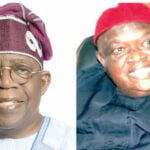ON Friday, August 11, members of the National Association of Resident Doctors, (NARD) called off the industrial action they embarked upon on July 26. NARD’s president, Emeka Orji, indicated that the association would review the progress made in the two weeks that the strike lasted and come up with the next line of action. In declaring the strike, NARD had listed the release of the circular for one-for-one replacement of clinical staff and the payment of the 2023 Medical Residency Training Fund as minimum conditions to call it off. This was in addition to its demand for upward review of the Consolidated Medical Salary Structure (CONMESS) and the payment of outstanding arrears of consequential adjustment, hazard and skipping allowances.
In response, the Federal Government had approved the payment of an accoutrement allowance of N25,000 per quarter to medical and dental doctors in hospitals, medical centres and clinics in the federal public service. In addition, it granted a 25 percent increment in the consolidated medical salary structure (CONMESS). However, the association rejected the measures, arguing that they were paltry and indicating that its members would go on peaceful nationwide protests from August 9. On its part, the Federal Government urged the doctors to resume work, saying that the strike had taken a toll on the lives of Nigerians.
It is really difficult to understand the government’s posturing when the constitution hinges the essence of government on the security and welfare of the citizenry. Why does the government willingly trifle with the lives of citizens, especially during desperate times? During the just ended strike, the government was unable to address the doctors’ demands meaningfully, beyond the shopworn and knee-jerk response of trying to impose a no work, no pay rule on the striking doctors. To be sure, we had, in previous editorials, insisted that the practice universally is not to pay workers when they go on strike, but that is not to say that those who go on strike without expecting to be paid do not have sufficient reasons to still be on strike. Indeed, the fact that workers could afford to forgo their pay to press for some demands they consider crucial is a signal for employers to buckle down quickly and attend to the concerns of the workers. This should be the case, especially when such workers attend to life and death issues such as the health of citizens.
Elsewhere in the world, the stability of the health industry rests on good governance and mutual trust between the government and the health workers. We believe that the government has a duty to enter into real negotiations with the striking doctors on their demands rather than assuming that they could be intimidated to resume work. It must recognise the fact that the striking doctors have opportunities to get engaged elsewhere. Indeed, the government has to become more serious about the issue of employer/worker relationships and refrain from treating the welfare of workers with levity. And in this particular case, it is not just the welfare of workers that is at issue; the welfare of citizens who are unable to have their health meaningfully attended to in the absence of the doctors must also be considered, especially given that the cessation of industrial hostility is only temporary.
The implication is that the government must urgently work out an amicable resolution to the lingering strike and ease the pains endured by the people. It should prioritise the welfare of citizens, including the doctors, as should be done by a responsible and responsive government.On their part, the doctors should endeavour to iron out the issues in contention at the negotiation table, taking cognisance of the lives of the patients in the various hospitals.
ALSO READ FROM NIGERIAN TRIBUNE
WATCH TOP VIDEOS FROM NIGERIAN TRIBUNE TV
- Let’s Talk About SELF-AWARENESS
- Is Your Confidence Mistaken for Pride? Let’s talk about it
- Is Etiquette About Perfection…Or Just Not Being Rude?
- Top Psychologist Reveal 3 Signs You’re Struggling With Imposter Syndrome
- Do You Pick Up Work-Related Calls at Midnight or Never? Let’s Talk About Boundaries







